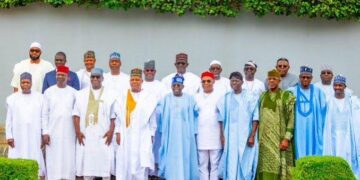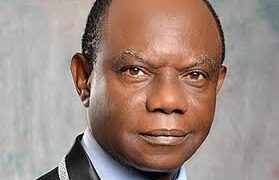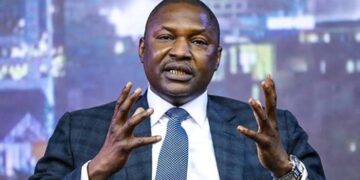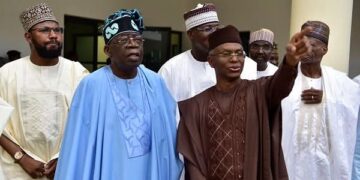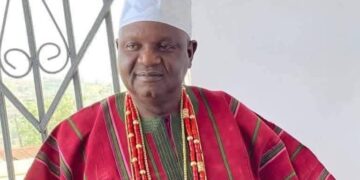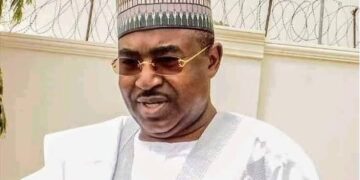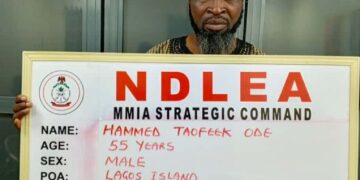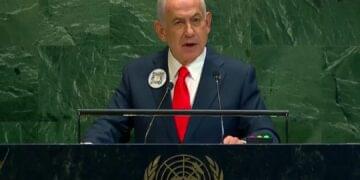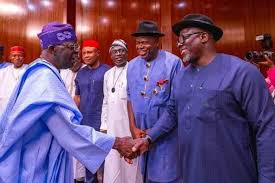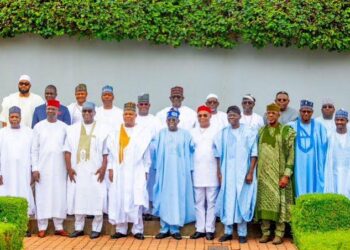__By Nelson Agbajor
When President Bola Ahmed Tinubu met with Delta State Governor, Rt. Hon. Sheriff Oborevwori, at Aso Villa, Abuja, it was more than just a political courtesy call, it was a meeting steeped in strategic significance for the future of Delta State. The recent defection of Governor Oborevwori from the Peoples Democratic Party (PDP) to the All Progressives Congress (APC) has stirred political discourse across the state and beyond. Yet, beneath the surface of speculations lies a vision for development, unity, and sustainable growth that could redefine the trajectory of Delta’s political and economic landscape.
As a media analyst and commentator, I chose to remain silent at the initial stages of this political development. Now, the time has come to engage in a constructive analysis, one that views this transition through the lens of progress, pragmatism, and potential.
Governor Sheriff Oborevwori’s defection to the APC was a bold move, misunderstood by many, but grounded in strategic foresight. Political decisions, particularly those involving party shifts, are often met with skepticism. But in this case, Oborevwori’s action signals a deeper intent: to align Delta State with the federal center for accelerated development. In the words of former Governor Ifeanyi Okowa during the defection ceremony in Asaba, “The main reason for this decision is to connect Delta State to Abuja, to connect our dear state to the center.”
This alignment is already beginning to bear fruit. The historic meeting with President Tinubu marked the beginning of what many believe will be a new era for Delta, an era defined by collaboration, synergy, and accelerated infrastructural and socio-economic transformation.
Though the details of their closed-door discussions remain undisclosed, authoritative sources reveal that the meeting was far-reaching and insightful. It centered on unlocking the immense potential of Delta State, attracting federal attention to critical developmental needs, and fostering policies that will ensure inclusive growth. It was a meeting that signaled Delta’s readiness to step fully into the national spotlight.
Governor Oborevwori’s leadership style, marked by inclusivity, pragmatism, and responsiveness, has won him admiration across party lines. His ability to unify divergent interests and focus on delivering real results underscores why his political transition is not just a change of party, but a catalyst for change in governance dynamics.
Speaking comparatively, governor Oborevwori has proven that leadership transcends political labels. Even prior to his defection, he had embarked on an ambitious development agenda that has left no senatorial district untouched. Under his watch, Delta State has transformed into a massive construction sit, Warri flyovers, extensive road networks, and urban renewal projects are visible markers of a government that is delivering on its promises.
His statement, “Deltans are seeing what we are using our state money to do. No be chor chor chor,” encapsulates a leadership philosophy rooted in action over rhetoric. It’s a sentiment shared widely among Deltans who now see tangible evidence of governance at work.
However, in this pivotal moment in Delta State’s political history, the role of the media cannot be overstated. As the fourth estate of the realm, we must embrace investigative and interpretive journalism, providing the public with balanced, objective, and well-informed reports. Sensationalism should take a back seat to facts and development-focused discourse.
This is not a time to overheat the polity with speculative narratives. Rather, it is a time to amplify the gains, interrogate the policies, and hold the government accountable through constructive criticism and positive reinforcement where due.
Furthermore, as political permutations for 2027 begin to surface, it is imperative to remember that power ultimately belongs to God. With the impressive achievements of Governor Oborevwori within a short time, many believe he stands on solid ground to seek re-election. However, the focus for now should remain on governance, service delivery, and building a legacy of excellence.
The governor’s defection to the APC is not an end in itself but a means to an end; a means to unlock federal support, attract investments, and implement long-term development strategies that will benefit every Deltan. It is a step towards sustainable growth and inclusive prosperity.
Governor Sheriff Oborevwori’s political move and subsequent meeting with President Tinubu represent a watershed moment in Delta State’s history. It is a calculated stride toward integration, advancement, and transformation. The days ahead hold promise; not just for political realignment, but for tangible progress that will elevate the living standards of the people.
History will judge this move not by the noise it generated but by the results it produces. And if current indicators are anything to go by, Delta State is on the path to a brighter, more prosperous future.
Nelson Agbajor
A Media Commentator and
Public Affairs Analyst,
07019180204
07/05/2025

